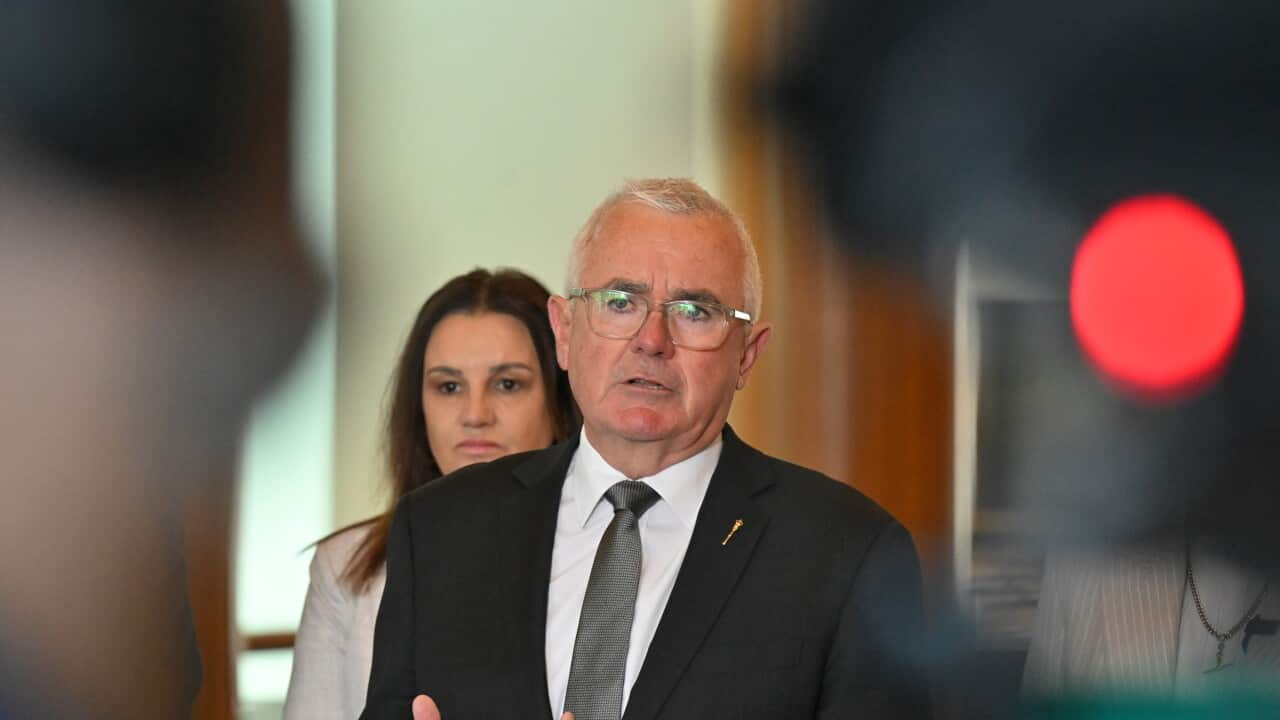TRANSCRIPT
"Mr Speaker I'm introducing this bill because the community has been waiting three years for the government to enact meaningful reforms to protect whistleblowers, but so far bugger all has been done and we're all bitterly disappointed. "
Independent MP Andrew Wilkie there, introducing a private members bill calling for the establishment of an Independent Whistleblower Protection Agency.
While whistleblowers in Australia are given some legal protections, some people, like Andrew Wilkie, say they are in urgent need of reform.
"Whistle blowers are an essential part of our democratic system. We need people who are witness to misconduct, to speak up and to be able to speak up safely. But in Australia, currently, whistle blowing is diabolically difficult."
The Whistleblower Protection Authority Bill has been introduced by MP Andrew Wilkie, MP Helen Haines, Senator David Pocock and Senator Jacqui Lambie.
It seeks to establish a body with the power to oversee and enforce whistleblower protections, facilitate whistleblower disclosures, and safeguard whistleblowers from inside government or business who expose corruption and wrongdoing.
Speaking to SBS, Mr Wilkie says that right now, people are too scared to speak up.
"Whistle blowing is very difficult in this country. Often whistleblowers are vilified for being, I don't know. They're tall poppies. They're not team players. So right from the start, you know, it's tough, and then the practical consequences of being a whistleblower are numerous. I mean, in this country, often a whistleblower will speak up, might end up getting sacked for it. It puts pressure on their relationships. They might not have an income. I mean, at it at its most, at its most brutal, there's the fact that, you know, the rate of suicide for whistleblowers is markedly higher than the baseline in the rest of the community."
Groups like Transparency International and Human Rights Law Centre also say the bill is pivotal.
Currently in place, things like the Corporations Act of 2001 and the Public Interest Disclosure Act are designed to offer protections for potential whistleblowers.
Professor A-J Brown is a Professor of Public Policy and Law at Griffith University and the Chair of Transparency International.
He says the current laws in place still have massive gaps.
"So we actually have plenty of whistleblower protection laws on paper. The really big gap is that nobody enforces them. So it's one thing for a whistleblower to, in theory, have their job protected or have to have a right to compensation if they suffer a reprisal or their sacked, but it shouldn't just be left to the whistleblower to actually have to assert those rights and defend themselves in court. It's the whole of the community that benefits from whistleblowers. So a whistleblower protection authority would actually carry that burden for the community and lift that burden from whistleblowers who are simply doing the right thing so that their rights actually mean something in reality and not just on paper. "
One example used by Mr Wilkie in expressing the need for something like an independent authority on the issue, is the case of Richard Boyle.
"Speaker, if you want hard evidence that our whistle blower protection legislation doesn't work, then just look at the case of Richard Boyle, the former Australian tax office official who faces the prospect of life in prison for revealing information about egregious behavior within the Australian Taxation Office, information which has been proven to be correct. I'll say that again speaker. Richard Boyle revealed information about appalling misconduct within the ATO. Information, which has found to be true. And it is he who faces prison time. "
Richard Boyle, who's whistleblowing sparked several independent inquiries in which his allegations were found to be true, is facing prison time for the way he went about collecting evidence of misconduct.
In 2017, Mr Boyle made a public interest disclosure about maladministration at the Adelaide debt collection centre of the ATO.
He was concerned about the excessive use of garnishee notices – legal documents by which the tax office can demand a financial institution hand over a taxpayer’s funds to pay an outstanding debt.
While he is not expressly facing charges of whistleblowing, he is now facing 24 charges, including taping private conversations without consent and taking photos of taxpayer information.
Mr Wilkie says that without an Independent Whistleblower Protection Authority, people don't have the support or the right information on how to protect themselves against legal challenges like this.
"The average whistleblower, they are on their own. They have no support, no one to give them advice no one to explain the complexities of the relevant legislation. So perhaps the most important function of a Whistleblower Protection Authority is to provide that support and advice to a potential whistleblower so that they even understand at the start whether they have a legitimate public interest disclosure, and if they decide to go ahead with it, that they have that support behind them."
Independent Senator Jacqui Lambie says ridding Australia of corruption should be something everybody agrees with.
"The only a question left remaining is, what is stopping those major parties? I'll tell you what, because they're up to the neck in this corruption, and that's what it comes down to. They're just covering their own butts. We'll make a much better country. We need corruption, and we need it out there, and people need to know what's going on. And people need to be protected. We need to protect them. "
Prime Minister Anthony Albanese, when in opposition in 2019, delivered a speech calling for a culture of disclosure and highlighting the need for stronger whistleblower protections.
Now, many argue the government is working too slowly to strengthen the protections.
Professor Brown says there are two key reasons the government may not have acted on this reform yet.
"It's genuinely the case that this government has confronted a lot of integrity and anti-corruption reforms across a lot of issues, as well as all the other things that has to deal with. So there is a problem about priority and as big supporters over many years for the creation of the National Anti-Corruption Commission and stronger anti-money laundering and stronger foreign bribery laws in Australia. We are very supportive of the fact the government has actually achieved all of those things. But the second reason is that it's quite complicated. Whistleblower protection is an issue that goes across the public sector and the private sector. It isn't simple and it's got to be got right, if the solutions are actually to work and not be complicated and end up just being, again, laws on paper that don't actually translate into protection in practice."
He says while 20 or 30 years ago, Australia was doing comparatively well when it came to whistleblower protections, we're now falling behind.
"In Europe now every country is required to have a whistleblower protection law, and many countries are establishing dedicated independent authorities to actually enforce and make those laws real. And many countries are doing things that Australia is not doing to plug gaps in the existing protections. So we have fallen behind. We really have the potential to get back to leading the world on the quality of our whistleblowing laws, but we're not there and we need reforms like this."
The bill will be introduced into the Senate later this week.













